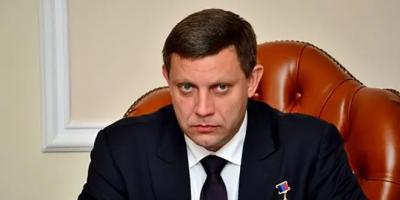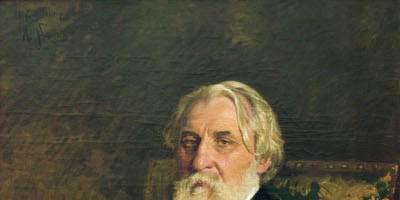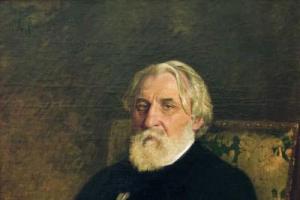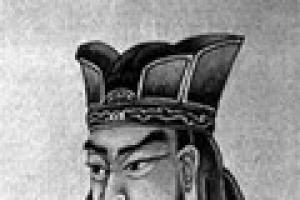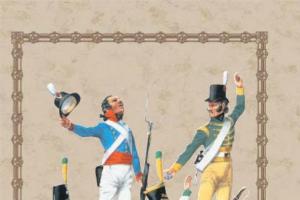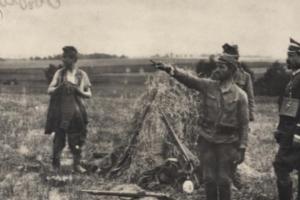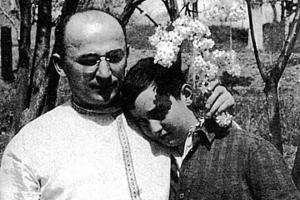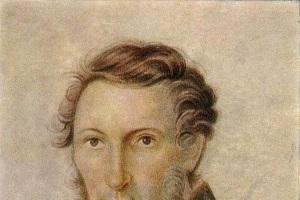On August 31, 2018, it became known about the death of the head of the DPR, Alexander Zakharchenko, as a result of an explosion in Donetsk.
Alexander Vladimirovich Zakharchenko was born on June 26, 1976 in Donetsk, Ukrainian SSR. Mother is Russian, father is Ukrainian.
He graduated from the Donetsk College of Industrial Automation with a degree in mining electrical mechanics. He studied at the Donetsk Law Institute of the Ministry of Internal Affairs of Ukraine and had an incomplete higher education.
He began his career at a mine as a mining electrician. Then he was engaged in entrepreneurial activities related to the coal industry. Managed large production teams.
Since 2010, he headed the Donetsk branch of the Kharkov public organization "Oplot", and later - a volunteer battalion formed on its basis (until July 7, 2014).
In the spring of 2014, with the beginning of protests in the south-east of Ukraine, caused by the events of Euromaidan and the change of power in the country (February 2014), Zakharchenko joined the people’s militia that was being formed in the region. On April 16, together with several members of the Oplot organization, he participated in the storming of the Donetsk city administration building.
Following the referendum on independence of the Donetsk People's Republic (DPR) on May 11, 2014, Zakharchenko was appointed military commandant of Donetsk. He held this position from May 16 to July 6, 2014, and later worked as Deputy Minister of Internal Affairs of the republic.
Participated in battles in the Donetsk region.
On August 8, 2014, he was approved by the Supreme Council of the DPR to the post of Chairman of the Council of Ministers of the Republic, replacing Alexander Borodai in this post.
On November 2, 2014, Zakharchenko was elected head of the proclaimed Donetsk People's Republic, receiving 77.51% of the vote (he took office on November 4, 2014). 10.03% voted for his closest rival - Deputy Chairman of the Union Parliament of Novorossiya Alexander Kofman.
He headed the Council of Ministers of the DPR and was the supreme commander in chief of the armed forces of the DPR.
In February 2015, at the first congress of the public movement "Donetsk Republic" he was elected chairman of the movement.
On February 12, 2015, in Minsk, following consultations between the leaders of Russia, France, Germany and Ukraine in the Normandy format, together with members of the contact group to resolve the situation in south-east Ukraine and the head of the proclaimed Lugansk People's Republic, Igor Plotnitsky, signed a set of measures to implement the Minsk agreements ("Minsk-2").
Colonel DPR (2015). Major General of the LPR (2015).
In 2015, Zakharchenko was awarded the title “Hero of the DPR.” He was awarded two St. George Crosses of the DPR, the Order of Valor, 1st degree (LPR; 2015), and the Order of Friendship of the Republic of South Ossetia (2015).
Was married. Wife - Natalya Vladimirovna. Zakharchenko left four sons.
On August 31, 2018, in the center of Donetsk, an explosion occurred in one of the cafes, as a result of which the head of the Donetsk People’s Republic, Alexander Vladimirovich Zakharchenko, was killed. The man was 42 years old. Mourning has been declared throughout the republic, exits and entrances to the territory of the DPR have been blocked, and the curfew has been extended from 23:00 to 05:00. Residents of the DPR are upset and offer their condolences to the wife and children of Alexander Vladimirovich.
Wife and children of Alexander Zakharchenko
According to official data, Alexander was married to Natalya Vladimirovna Zakharchenko (Gladkova). It is also known that before Gladkova he had another wife - another Natalya, who gave birth to Alexander three sons. In her second marriage, on July 30, 2015, Natalya Gladkova gave birth to a fourth son, who was named in honor of his father - Alexander.
Natalya Vladimirovna always supported her husband in everything, always trusted him. Martial law strengthened their family. The woman was even on the front line with her husband. “Natalya Vladimirovna really didn’t want me to die. And since she realized that you could no longer dissuade me from participating in these battles (for the Donetsk airport), she set a condition for me: either we go together, or we both don’t go. She also put on her uniform, took a machine gun and went here,” said Alexander Zakharchenko. Natalya’s call signs were “Mom” and “Wife”.
Brief biography of Alexander Zakharchenko
Alexander Vladimirovich Zakharchenko was born on June 26, 1976 in Donetsk. After graduating from school, he entered a technical school, where he received a specialty in mining electrical mechanics and graduated from the technical school with honors.
The man worked in a mine, did business and headed a branch of the public organization “Oplot” before the start of the war in Donbass. During the bloody battles in the Donetsk region, Alexander bravely defended his hometown.
In February 2015, Alexander was seriously wounded in the leg while participating in a battle in Debaltsevo. He was awarded the title “Hero of the DPR” and was also awarded the Order of “Glory of the LPR”.
Many attempts were made on Alexander Zakharchenko's life.
Murder of Alexander Zakharchenko on August 31, 2018
On August 31, 2018, in the afternoon, an explosion occurred on Pushkin Boulevard (Donetsk) in the Separ cafe. Many people were injured due to the explosion. The head of the Donetsk People's Republic was wounded in the head, which is incompatible with life. Zakharchenko was not taken to the hospital.
Russian President Vladimir Putin expressed his opinion on the murder of the head of the DPR. He called this crime vile and hopes that the saboteurs will receive the punishment they deserve.
Alexander Zakharchenko is the leader of the Donetsk People's Republic, born in 2014 in the south-east of Ukraine, commander-in-chief of the armed forces of the DPR, statesman and military figure.
Childhood and youth
The future head of the republic in eastern Ukraine was born in June 1976 in Donetsk into a Russian-Ukrainian family. The head of the family was born in Ukraine and worked in a coal mine for 35 years. Alexander's mother is Russian. According to the minister in charge of social policy of Ukraine, Zakharchenko’s parents live in the city of Artemovsk, controlled by the Ukrainian authorities. They receive a pension from Ukraine.
In his youth, Alexander Zakharchenko studied at a secondary school in Donetsk. After receiving his matriculation certificate, he became a student at the local technical school of industrial automation and received a specialty in mining electrical mechanics. Zakharchenko studied diligently and received a diploma with honors.
The politician’s work biography began at a coal mine in Donetsk, where a young electrician received the 6th qualification category. Zakharchenko’s attempt to obtain a higher education did not materialize: Alexander entered a law school in Donetsk, but for an unknown reason he left his studies.
Business
At the beginning of the 2000s, the former electrical mechanic went into business. The official version is that Alexander Zakharchenko’s business was related to coal mining. In 2006, the future leader of the DPR headed a company that was part of the extensive business of a Ukrainian financial tycoon.

The register of legal entities contains information that Alexander Zakharchenko was at the origins of the Delta Fort company as one of two co-founders. The company's field of interests is extensive: the limited liability company "Delta Fort" is engaged in book publishing, wholesale trade in food products, tobacco products and alcoholic beverages. The LLC still exists today, but Zakharchenko left the co-founders.
Military service
In 2010, a branch of the Oplot organization, previously created in Kharkov by a pensioner of the Ministry of Internal Affairs Evgeniy Zhilin, opened in Donetsk. The scope of Oplot’s activities is providing assistance to disabled soldiers and families of law enforcement officers who gave their lives in service.

In December 2013, the Donetsk branch of the organization was headed by Alexander Zakharchenko. “Oplotovtsy” are also known for their socio-political position: they oppose the glorification of the nationalist formations OUN-UPA, which operated on the territory of Ukraine during the Second World War, against the displacement of the Russian language, and for the preservation of monuments of the Soviet period.
Zakharchenko’s Anti-Maidan position brought him into the ranks of the militia that opposed the coup in Ukraine. Alexander Vladimirovich declares that the goal of him and his comrades was to return the right to self-determination and the opportunity to build a future to Donbass.

After the uprising of the southeast in mid-April 2014, Alexander Zakharchenko took up arms and led a group of like-minded people who occupied the city administration of Donetsk. In May of the same year, after the referendum, Alexander Vladimirovich became commandant of the city.
Alexander Zakharchenko fought in the southeast of the country. In May, during the battles for the Donetsk airport, a shrapnel hit the leg, and in July 2014, during an attack on the village of Kozhevnya, a bullet pierced the hand of a militiaman. Soon the defender of Donbass received major stars, Zakharchenko was appointed deputy minister of the republican Ministry of Internal Affairs.
Policy
At the beginning of August 2014, Chairman of the Council of Ministers of the Republic Alexander Boroday announced his resignation. The vacant chair went to Alexander Zakharchenko. Five dozen people's deputies gave preference to his candidacy against six abstentions and one vote against. The new chairman swore allegiance to the Donetsk people.
At the end of summer, an attempt was made on the life of Alexander Zakharchenko for the second time. The driver and the politician's car were injured.

In October 2014, Zakharchenko was the first to register as a candidate for the post of head of the republic. Elections were held in November, which resulted in a landslide victory for Alexander Vladimirovich: 75% of voters voted for his candidacy. The heads of the countries of the European Union, America and Ukraine did not recognize the elections in the republic as legitimate, and the Russian Foreign Ministry declared respect for the will of citizens of the eastern region.
The inauguration, during which Alexander Zakharchenko took the oath, took place in the academic drama theater of Donetsk. And in February of the following year, the head of the DPR and the head of the neighboring Lugansk Republic signed a document agreed upon by the Normandy Four in Minsk. The leaders of the Quartet countries agreed on a bilateral ceasefire effective February 15, 2015.
The set of measures agreed upon in Minsk is not being implemented, for which the parties blame each other. 5 days later, the head of the republic was wounded in the leg in the battles for Debaltsevo.

Zakharchenko was included in the lists of citizens who are under sanctions of America and the European Union. The Ukrainian Security Service put the Donetsk resident on the wanted list under an article that provides punishment for terrorism.
Awards and achievements
- Golden Star of the Hero of the Donetsk People's Republic
- Two St. George Crosses of the DPR
- Order of St. Nicholas the Wonderworker, I and II degrees
- Order of Valor, 1st class (LPR)
- Order of Friendship (South Ossetia)
Separatism, extremism, terrorism - today these terms are familiar to every Ukrainian. The war in Donbass, coupled with the aggression of the united Russian-separatist forces, led to the death of hundreds of Ukrainian soldiers, civilians, and the destruction of infrastructure. The occupation forces, in their policy in the territories under their control, relied on the support of local marginal forces, from which collaborationist occupation administrations were formed.
In Donetsk, the collaborationism of local separatists is associated with the majority of government officials in the so-called “DPR.” One of the main figures in the hierarchy of occupational collaborationist power in the temporarily occupied territory of the Donetsk region is the current head of the Donetsk separatists, the head of the so-called “republic” Alexander Zakharchenko.
Biography
According to official information disseminated by Russian and separatist media, Alexander Vladimirovich Zakharchenko was born on June 26, 1976 in Donetsk.
The future leader of the Donetsk separatists graduated from the Donetsk Technical School of Industrial Automation (with honors), worked in a mine as a miner, an electrician, and was engaged in business. For some time he studied at the Donetsk Law Institute of the Ministry of Internal Affairs of Ukraine, but dropped out of school.
A journalistic investigation by the Insider publication cites facts about Zakharchenko’s long-term collaboration with the structures of the Party of Regions. So, in 2006 Alexander Zakharchenko occupied position of director of the Limited Liability Company "Trading House "Continent". This company, like many others in Donetsk, was part of the business empire of the Donetsk oligarch Rinat Akhmetov. According to the register of legal entities, Zakharchenko was a co-founder of the Donetsk LLC "Delta Fort" This company still exists, but only Ternavsky remains among the founders.activity profile"Delta Fort" is quite broad - from book publishing to wholesale trade in food, alcohol and tobacco. Among Zakharchenko’s partners is also Oleg Denisenko, who in 2003 worked as an assistant to the deputy mayor of Donetsk, and in 2004 as an assistant adviser to the Deputy Prime Minister of Ukraine.
According to the portal "Observer", Zakharchenko's fellow countrymen speak of him as a guy who did not stand out in any way - he loved to drink, was dishonest... This is what a former colleague from the Olympus vodka company, where Zakharchenko worked for a short time as a supervisor, assures and allegedly stole a small amount of money. “But when the Olimp security service took Zakhar into development, he himself came to the main office on Mira Avenue and returned the money to the cash register,” says an employee of the vodka company.

According to media reports, by the winter of 2014, Alexander Zakharchenko worked as both a watchman and a manager. He led the "kopanka", which was generally controlled in the Donetsk region by Alexander Yanukovych, the eldest son of the ex-president of Ukraine.
Donetsk entrepreneurs who sell meat also remember Alexander Zakharchenko well. In this environment, the leader of the so-called. "DPR" is called familiarly - "Sasha-Gavrilovsky chickens."
“The fact is that Zakharchenko, as long as I remember, traded chickens - wholesale and retail,” one of the Donetsk entrepreneurs tells Obozrevatel. “He had a warehouse somewhere on Azotny. There were retail outlets. He worked in the branch for a long time Kiev enterprise "Gavrilovsky chickens". That's where the nickname comes from. A rare talker: "He saved a lot of lives, crashed three Ferraris, beat all the cops in the club" - his ordinary tales. He can tell tales about his military past in Afghanistan, showing a scar on his hand. And on I actually had an accident."
According to Nasha Gazeta, before the start of his separatist activities, Alexander Zakharchenko, trading in poultry meat, had a turnover of approximately 10-15 million hryvnia. Probably, if not for his acquaintance with the Kharkov extremist organization Oplot, Zakharchenko would have continued to sell chickens. But in December 2013, he was among the “titushki” whom the Party of Regions used as the combat wing of the Anti-Maidan.
“We turned out to be so popular that all the forces that wanted to fight the Banderaites began to come to Kharkov,” said the head of Opolot, Yevgeny Zhilin, in an interview with the separatist media. “I talked to everyone, chose, and Sasha from Donetsk was elected, who wanted to lead Oplot there. Our man went to Donetsk for a rally, we took him out, gave him a T-shirt, gave him a flag and said: here you are, unite around him. He was able to organize people on the territory of Donetsk, solve the issue of food. And I was involved in financing and arming this unit."
Businessmen who met Zakharchenko during the Maidan period speak of him as a man no longer poor. They call it "mutila". They say that in March the future “people's prime minister” earned his first million.
“Zakhar has an “envelope” (conversion center - ed.), through which the money of Oplot, which he heads at the Donetsk level, passed,” a Donetsk businessman told the Observer. “Zakharchenko was drawn into Oplot by Zhilin, and so is Zhilin. there was a conversion center in Kharkov. Zakharchenko traded for cash, and Zhilin gave him non-cash payments. In mid-spring, Zakharchenko had a chicken turnover of 20 million hryvnia, and for this amount he “poured” for Zhilin. Wholesalers of consumer goods sell cash in “envelopes” ", and they, in turn, transfer money to the manufacturer for a new chicken. Zakharchenko, for a percentage, brought all his familiar chicken coop wholesalers into this topic."
Beginning of separatist activities
In March 2014, Zakharchenko was first captured by journalists. In the video of the Donbass News website dated March 17, 2014, he does not seize a state building, as Russian media later stated, but stands behind the back of the future DPR policeman Igor Melnikov near the Donetsk Regional State Administration, which grandmothers excited by pro-Russian slogans came to seize, and persuades them abandon this plan.
During the month of continuation of separatist actions, Zakharchenko now plays the opposite role: on April 16, together with a group of two dozen guys in masks, with a variety of weapons and in "Oplot" armbandsseizes the building of the Donetsk City Council.
Having captured the mayor's office, Alexander Zakharchenko makes the first official statement in his life: “We came here with a demand for a local referendum. We ask the executive committee to help in preparations. We want to put forward our demands to the Verkhovna Rada regarding the adoption of Alexander Bobkov’s bill (local referendum). It was introduced, and it was rejected accept the factions of the Party of Regions."
Party of Regions deputy Alexander Bobkov was the creator of the Kharkov “Oplot” and the main “curator” of this gangster group: in the spring of 2014, his headquarters in the center of Donetsk received about two hundred militants. On April 28, 2014, Oplot, controlled by Zakharchenko, seized the television center at 61 Kuibysheva in Donetsk. Near the television center building, several hundred separatists are chanting: “Russia!”, “Referendum!”, “Slavyansk is a hero city,” “Kiev is not a decree for Donetsk.” The tricolor of the “Donetsk People’s Republic” is hung on the building of the state television company. The regional television and radio company in Donetsk is being renamed Oplot TV. Then militants with Kalashnikovs were stationed at the entrance to the television center. After this, Zakharchenko cuts off the Donetsk people from Ukrainian channels. At the same time, Oplot militants take under protection the vast estates of oligarch Rinat Akhmetov in the Botanical Garden, but do not protect the property of the then governor, oligarch Taruta, from pogroms.
Next, the “Sasha-Gavrilovsky chickens” receive the post of commandant of Donetsk and move into the “Ministry of Defense” of the separatists. August 8, 2014 "Prime Minister" so-called. "DPR", FSB officer Alexander Borodai resigns, and his place is unexpectedly taken by "Oplot field commander" Alexander Zakharchenko.

The first thing Zakharchenko did in his new “position” was to criticize the activities of the head of Russian terrorists, the “Minister of Defense of the DPR,” former FSB officer Igor Girkin. The Oplot commander said that Girkin wanted to blow up Donetsk 9-story buildings to make it easier to defend. This reaction from Zakharchenko greatly surprised Girkin and aroused criticism from the so-called militant group “Strelkovtsy”. Later, in August 2015, Girkin will call Zakharchenko a traitor for agreeing to implement the Minsk agreements.
In November 2014, Zakharchenko demonstratively won the fake “elections” of the chairman of the “DPR”, excluding his main competitors - the “people's governor” of the separatists Pavel Gubarev and the Donetsk communist Boris Litvinov.
“They call” Rinat a man, but this is nonsense, representatives of the separatist leadership say confidentially. - At most he knew someone who was Akhmetov’s man. In Ukraine, I knew which doors the sums needed to be sent to. Under the “DPR”, he maintained close ties with Donetsk security forces and officials who accidentally ended up on the side of Ukraine. Zakharchenko held the cash register of the "militia". And thanks to this, he was among the candidates being discussed. But Muscovites, by and large, don’t care. They don't trust anyone from the locals. The main task that Moscow has set for the new leader of the “DPR” is to subjugate the scattered gangs and field commanders of Donbass. But Zakharchenko did not gain real authority among ordinary militants.”

Alexander Bobkov
Zakharchenko continued to develop relations with former People's Deputy of Ukraine Alexander Bobkov, who was previously deputy chairman of the Donetsk regional organization of the Party of Regions. In 2014, as a people's deputy of Ukraine, Alexander Bobkov openly campaigned for undermining the territorial integrity of Ukraine. According to Obozrevatel, in the spring of 2014, speaking in front of the entire assembly hall, Bobkov called for breaking Ukraine into six parts. In fact, Bobkov is one of the shadow managers in the power corridors of the separatists.
With the assistance of Zakharchenko and former “regionals”, former chairmen of district councils under the so-called. "DPR" turned into regional "commandants". Some officials from the apparatus of the Donetsk Regional State Administration of Ukraine went to work in the “DPR apparatus.”
Having actually found himself at the head of the “DPR,” Alexander Zakharchenko concentrated in his hands power in the temporarily occupied territory. The “security forces” controlled by him, whose apparatus was created with the assistance of the Russian special services, began to fight against political opponents.

The leader of the Donetsk separatists was not a supporter of compliance with the Minsk agreements, but was forced to reproduce the Kremlin’s position addressed to him through political strategists from Vladislav Surkov’s team. At the same time, unlike Igor Plotnitsky, the figure of Zakharchenko was beneficial for both the “peace party” and the “war party” in the Kremlin. Sometimes the conflict between these two conditional power groups in Russia was reflected in the rhetoric and activities of the leader of the Donetsk separatists. Thus, on January 24, 2015, Zakharchenko announced the start of an offensive against Mariupol. However, he retracted his statements after Russian militants shelled residential areas in the eastern part of Mariupol. On February 15, 2015, Zakharchenko announced his intention to take Kharkov “in any case,” thereby violating the Minsk agreements. Then on February 20, he announced that he had resigned from his position by writing a statement, but he did not provide any additional details regarding the resignation. In fact, Zakharchenko remained in the future as chairman of the so-called. "DPR".
According to a message from ex-adviser to the head of the SBU Markiyan Lubkivsky dated November 26, 2014, citizen Alexander Zakharchenko is a defendant in criminal proceedings on suspicion of committing a crime under Article 2583 of the Criminal Code of Ukraine “Creation of a terrorist group or terrorist organization” and other particularly serious crimes. He is also the main suspect in the case of the death of civilians near Volnovakha as a result of a terrorist attack. On January 19, 2015, the Prosecutor General's Office of Ukraine contacted Interpol with a request to put Zakharchenko on the international wanted list.
.jpg)
Relationships with field commanders
In February 2015, there were reports from Donetsk of a conflict between the military leadership of the separatist "Donetsk People's Republic". According to Ukrainian media, the protagonists of the scandal were the leader of the “DPR” Alexander Zakharchenko and the self-proclaimed then deputy “Minister of Defense”, head of the militants’ “military intelligence” Sergei Petrovsky (call sign “Khmury”). Political leadership of the so-called. The “DPR” repeatedly tried by any means to subjugate or remove from the game influential field commanders who still wanted to play an independent political role. “Khmury” was no exception, who then repeatedly declared the intention of the leaders of the “DPR” to get rid of him by liquidating the “Intelligence Directorate” he led. Having left for Russia for several weeks, the field commander “Khmury” began taking decisive action regarding his triumphant return to a leadership post in the “DPR.” Having received the support of the leader of the Chechen Republic Ramzan Kadyrov, Petrovsky managed to attract the attention of Kremlin forces to Zakharchenko’s actions. In order to put pressure on the leadership of the separatist “republic,” the formation of a “separate assault brigade” began by order from the Kremlin in the “DPR.”
“The unit will not be subordinate to the leadership of the DPR and will carry out its activities regardless of Zakharchenko’s decisions,” Petrovsky explained then.
According to the plan of its “curators,” the formation of this kind of unit would provide an opportunity for all opponents of the “Zakharchenko regime,” including Petrovsky personally, to carry out significant armed resistance and remove the leader of the “DPR” from his post. However, the plan could not be realized due to a conflict in the Kremlin itself regarding influence on the Donbass separatists. Russian special services recalled Petrovsky to Rostov in March 2015, after which they banned him from entering the so-called “DPR”.
Zakharchenko’s relationship with the illegal armed groups of the “Kadyrovites” turned out to be quite specific, who did not want to submit to his power and played their own independent game, robbing and terrorizing the local population. The conflict with Caucasian mercenaries began in January 2015. Then the “Kadyrovites” were indignant that they were being thrown “like minced meat” into the assault on the Donetsk airport. According to the Informator website, after this clarification of relations they moved on to financial flows. The “Kadyrovites” claimed that Zakharchenko “squeezed out” the funding directed by Moscow to them, which outraged all field commanders from Chechnya. The head of the separatists, in an interview with the Russian Lifenews, criticized the leader of the Chechen Republic, Ramzan Kadyrov, allowing himself to make rather sharp statements about the Chechen leader. After the Russian special services intervened in the conflict during April-May 2015, most of the Kadyrov’s gangs were disarmed. The Chechen mercenaries who remained after the “cleansing” were forced to either join the ranks of military formations controlled by Zakharchenko, or leave for Russia.
The relationship between Alexander Zakharchenko and other field commanders who belonged to the so-called was quite complicated. "Strelkov's group." The activities of the head of "Oplot" were publicly criticized by the former shawarma merchant from Gorlovka, militant Andrey "Chervonets".

“Those who came to the “DPR army” to “squeeze” complain that Zakharchenko is lining his pockets, and does not allow the “common people” to pinch off a piece. This is not the government, this is a new group! - said “Chervonets”, according to according to whom, the leader of the “republic” personally “protects” the entire trade in alcohol and cigarettes. “Zakhar drives around in nice jeeps, but doesn’t give people money.”
For criticizing the activities of Zakharchenko and assistant to the President of the Russian Federation Vladislav Surkov, a large number of separatist field commanders were imprisoned by the militants of the “MGB DPR”. Among them, we especially need to highlight Stanislav Slepnev (call sign “Mongol”), militants from the Vargana group, who enjoyed great support in the local separatist environment. Field commanders “Boatswain”, “Shaman”, “Lynx”, “Korsun”, Yuri Safonenko, “Samvel”, “Druzhok” and others also had problems through independent activity.
Thus, a militant with the call sign "Druzhok", who previously worked at a factory in the city of Druzhkovka as a turner, and under the "DPR" became the commander of a separatist tank battalion, on YouTube accused Zakharchenko of sympathizing with Akhmetov and called on the terrorist Gurkun to regain power in " DPR".
Zakharchenko’s relationship with field commander Alexander Khodakovsky is developing relatively without conflict. However, according to information from the separatist environment, there is a struggle between them for control over smuggling. That is, there is a conflict of interests between the illegal armed formation “Vostok” (headed by Khodakovsky) and the gangster formation “Republican Guard” (created on the basis of “Oplot”). At the same time, Khodakovsky himself heads the so-called. The “DPR Security Council” represents the interests of the Donetsk oligarch Rinat Akhmetov in the “DPR” leadership. In fact, Vostok militants guard the Donbass Arena stadium, which belonged to the oligarch, and Rinat Akhmetov’s charitable foundation located there.
.jpg)
Political opposition
Unlike the "LPR", in the so-called "DPR" in the separatist parliament there is a legal opposition from representatives of radical organizations and movements united in the political bloc "Free Donbass". There are virtually no open conflicts between this organization and the pro-government “Donetsk Republic,” but these structures reflect completely different political positions. In fact, the field commander Alexander Khodakovsky can also be conditionally included in Zakharchenko’s systemic opposition, but he is not currently positioning himself in the political field of separatist activity.
The non-systemic opposition of Alexander Zakharchenko includes:
1) Donetsk communists led by Boris Litvinov;
2) the political group “Novorossiya”, led by the disgraced separatist leader Pavel Gubarev, who currently has no presence in political positions in the separatist power structures;
3) the separatist organization “Donbass Rus”, whose ranks include representatives of the political party “Russian Bloc” banned in Ukraine;
4) Russian supporters of the neo-fascist terrorist project "Novorossiya" - Boris Borisov, Roman Manekin and others. This group can also include the extremist group of “National Bolsheviks”, whose members were recruiting militants in the EU countries and the post-Soviet space through the structure of the terrorist organization “Interbrigade”. However, militants from the MGB banned the National Bolsheviks from operating in the territory under their control.
5) the ultra-leftist organization "Struggle", whose members were repeatedly detained by militants of the DPR MGB in Donetsk.

Financial condition
According to Novaya Gazeta, Alexander Zakharchenko today controls most of the liquid assets of Donetsk and nearby cities. Former "strongholds" with the "Republican Guardsmen of the DPR" supervise supermarkets, restaurants and cafes, shopping centers, and act as a "roof" for industries that have not yet been closed. One of the most noticeable "acquisitions" of Zakharchenko's structures is the ATB grocery supermarket chain. , owned by a group of Dnipropetrovsk businessmen. In the territory of the Donetsk region alone, which is controlled by militants, there are 152 ATB stores. At the end of 2014, the chain began to gradually close retail outlets, explaining this step by the inability to ensure the safety of staff. But soon the supermarkets began to be occupied by people who presented themselves as "DPR" officials. Some of the stores were renamed "The First Republican Supermarket". According to "ATB-Market", control over them was gained by Alexander Zakharchenko's wife, Natalya. In addition to "ATB", retailers remember the Zakharchenko family as curators of the Amstor chain of stores ", which formally belongs to the Smart-Holding company of the Ukrainian oligarch Alexander Vagorovsky. According to Novaya Gazeta, the oligarch maintains contacts with the leaders of the DPR. It is reported that Zakharchenko’s entourage also ensures the safety of food delivery from the territory of Ukraine.
“Literally everyone wants to get their piece, from small “guard” commanders who take it in kind, to the top officials who sell our goods,” shares a representative of one of the supplying companies.
Zakharchenko receives a separate profit from the sale of petroleum products. In this direction, he previously collaborated with a man of the Ukrainian oligarch Alexander Kurchenko - Yevgeny Fainitsky, who headed the “Ministry of Energy” of the separatists. However, later, during behind-the-scenes intrigues, Fainitsky was arrested by the MGB, and after his release he left for Russia.
Alexander Zakharchenko chose the building of the regional financial administration of the Donetsk region for his working residence. It is here, and not in the regional state administration building, that the head of the “DPR” spends most of his working time. Zakharchenko travels in a motorcade of five luxury SUVs, including Mercedes GL and Lexus GX.

Cult of personality
On November 3, 2014, after illegitimate and rigged elections in the “DPR”, the unrecognized “CEC of the separatists” declared Zakharchenko the winner: 765 thousand people allegedly voted for him, which was about 75% of voters. On November 4, the “inauguration” took place at the Donetsk Academic Music and Drama Theater “Zakharchenko, during which, according to eyewitnesses, he made an “oath”, placing his hand on the Bible, and received from the Chairman of the DPR Central Executive Committee Roman Lyagin the certificate of the head of the “DPR”.
Alexander Zakharchenko, like his “colleague” from the “LPR” Igor Plotnitsky, uses the services of Kremlin consultants and political strategists, who in fact remain the “gray cardinals” of the Donetsk separatists, shaping the agenda in the occupied territories. Following the instructions of the “gray cardinals” from the Kremlin, Donetsk separatists began to create a real cult of personality around the figure of Alexander Zakharchenko, forming a classic military dictatorship in Donetsk. In fact, this type of political regime has all the characteristics of a typical military junta.
Pro-Russian and separatist media began to create a propaganda image around the clock, portraying the leader of the Donetsk separatists as a “hero”, “a caring politician open to communication with the people.” Constant meetings with Donetsk residents, active public policy, multiplied by retrograde pro-Russian statements, began to have their effect. Having alternative access to the media, succumbing to round-the-clock aggressive Russian propaganda, some of the residents of the occupied territory became hostages of the great social experiment of the Russian special services to create a personality cult for the leader of Donetsk militants and separatists. For a certain segment of the population that remained in the temporarily occupied territory of the Donetsk region, Alexander Zakharchenko became the personification of the new regional “elite” (the so-called “new Donetsk”), which replaced the Party of Regions, whose representatives began to be considered traitors.
Unlike the figure of Igor Plotnitsky, Russian political strategists, together with “curators” from the special services, managed to artificially make the leader of the Donetsk separatists an object of cult, characteristic of totalitarian and authoritarian consolidated political regimes. The “inauguration” with a bear on the theater stage of Donetsk and the New Year’s greetings from Alexander Zakharchenko on local TV as the leader of an independent “republic” only emphasized the creation of the image of the military dictator of the “DPR.”
In January 2015, the head of the self-proclaimed “DPR” awarded himself the fourth St. George Cross, with which he defiantly appeared in public during the “elections” of the head of the Donetsk separatists on November 2, 2014. Militant leader Alexander Zakharchenko opened a “monument to the victims of the undeclared war” in Russian-occupied Gorlovka.
However, today there is more and more talk that Alexander Zakharchenko may be replaced by another figure from the separatist leadership. Among these are the figures of Alexander Khodakovsky, Andrei Purgin, Denis Pushilin or even Igor Bezler. The field commander “Khmury” repeatedly voiced information about this. But today we are witnessing the strengthening of the regime of Alexander Zakharchenko, which has actually turned into a classic military dictatorship.
Reading time: 7 minutes. Published 09/01/2018
Quick navigation
DONETSK, news September 1, 2018 – biography of Alexander Zakharchenko. The head of the DPR, Alexander Zakharchenko, died in Donetsk as a result of a terrorist attack. He died from injuries in an explosion in the Separ cafe in the center of Donetsk.
According to the latest data, Alexander Zakharchenko died from a traumatic brain injury received as a result of the explosion. The wound was incompatible with life.
Follow also:
Alexander Zakharchenko is a native resident of the city of Donetsk. At one time, he worked at a mine, did business and headed a branch of the public organization Oplot. During the confrontation that began in Donbass, he took the side of the people and led the volunteer battalion he created.
Childhood and family of Alexander Zakharchenko
It is known that Zakharchenko was born in Donetsk. He is a native of this city. His mother is Russian, and his father is Ukrainian. Alexander's father worked at the mine for thirty-five years. After graduating from school, Zakharchenko continued his studies at the Industrial Automation College in Donetsk. His specialty is “mining electromechanic”.
He graduated from college with honors and immediately began working in his specialty. Later, Alexander entered the Donetsk Law Institute of the Ministry of Internal Affairs, but did not graduate.
Zakharchenko died in DonetskPeaceful life
Alexander’s first place of work was a mine, where he managed to become a sixth-class electrician. After leaving the mine, Zakharchenko went into business related to the coal sector. According to other information, the commercial activity was related to the chicken trade. According to him, he led a fairly large team. Open sources report that Alexander headed the Continent Trading House in 2006.
In 2010, a branch of the Kharkov public organization called “Oplot” was formed in the city, headed by Zakharchenko. The organization was created by Evgeny Zhilin, a retired employee of the Ministry of Internal Affairs.
Its goal is to provide social, financial, legal and psychological assistance to the families of police officers who died while performing their duties. “Oplot” also helped disabled soldiers. Members of the organization set their goal, among other things, to fight against the glorification of UPA representatives.
“Oplot” monitored the maintenance of the monuments of the Great Patriotic War in proper condition.

Zakharchenko’s participation in the confrontation in Donbass
In 2014, after the change of power in Ukraine, mass peaceful protests began in the southeast of the country. Zakharchenko was among those who protested in Donetsk square. On April 16, 2014, a group of protesters decided to storm the administration building of the Donetsk region. He was among those who occupied the administrative building.
On May 11, a referendum was held, which was supposed to answer the question of self-determination. The head of the DPR first became the military commandant of his hometown, and later headed the Ministry of Internal Affairs of the republic. When fierce fighting began on the territory of the Donetsk region, Zakharchenko was among those who defended their region and their city. He was wounded in the arm during the battles that took place near the village of Kozhevnya at the end of June 2014.
A month later, Zakharchenko received the rank of major. In August, the first prime minister of the Donetsk Republic, Alexander Boroday, resigned. In his place, deputies of the Council of the Republic appointed Alexander Zakharchenko. This decision was made almost unanimously. Zakharchenko took the oath of allegiance to the people of the republic and began to fulfill his duties.
At the end of August, an attempt was made to assassinate the newly appointed prime minister, but the attempt was unsuccessful. The head of the republic remained unharmed, but his driver was injured.

Alexander Zakharchenko as head of the DPR
A month before the elections to the post of head of the “DPR”, Zakharchenko submitted documents, becoming the first registered candidate for this post. According to most political scientists, even before the elections it was possible to say with confidence that Zakharchenko would win.
As you know, he came from a simple militia, is a native resident of Donetsk, and therefore enjoys considerable trust from the population of the republic. Before the elections, another opinion was voiced - Zakharchenko was called a protege of the Kremlin.
The elections took place on November 2. Seventy-five percent of the DPR citizens who voted cast their votes for Zakharchenko. As you know, the results of these elections were recognized as legitimate only by Russia. The European Union, Ukraine, the United States, and the UN Secretary General did not recognize the election results.
The inauguration of the elected leader of the republic took place in early November. After taking the oath, Alexander was presented with the certificate of the head of the “DPR”. He promised voters that he would defend the interests of the republic and do everything possible to boost the economy of the republic and create a fair and wealthy state.
At the end of November, during a detour of militia formations located in the area of the Donetsk airport, Zakharchenko was fired upon by Ukrainian regular troops, including from grads. The head of the “DPR” managed to take refuge in a nearby hotel. He was not injured.
Alexander Zakharchenko was elected head of the Donetsk People's Republic in November 2014. The overwhelming majority of voters voted for him in the elections.
Tough, but ready to compromise if it is for the benefit of the republic. Despite his position, Alexander Zakharchenko was rarely seen in a suit, tie, or in offices in general. He didn’t like press conferences; he simply didn’t attend many. But he almost never left the front line.
“This was a leader who simply took a machine gun in his hands and, when an operation was underway, for example, to liberate Debaltsevo, he did not sit somewhere in the headquarters, or in the office, or in the administration. He went on the assault with ordinary ordinary soldiers,” recalls military correspondent Semyon Pegov.
Zakharchenko was born in Donetsk in 1976. There he graduated from school and technical school with a degree in mining mechanics. He worked in a mine, and at the same time studied at the Faculty of Law of the Institute of the Ministry of Internal Affairs. Then he went into business: in 2010, he created a branch of the Kharkov organization “Oplot” in Donetsk, which, among other things, fights followers of the UPA (banned in Russia). When nationalists take power on Maidan, Alexander joins the militia.
“To be honest, I wasn’t interested in whether it was all simple or not. At that moment I defended my family, my homeland, the memory of my ancestors, my past, my Orthodox faith. And therefore, I believed that, as a normal man, I was obliged to participate in this process on the side of the government that was legal at that time,” said Alexander Zakharchenko.
On April 16, 2014, Zakharchenko and six fighters occupied the building of the Donetsk city administration. After the referendum, he was appointed military commandant of the city, then deputy minister of internal affairs. In August, Zakharchenko replaces Alexander Borodai at the head of the government of the republic, in November he gains 76% of the votes and becomes the head of the DPR.
“Zakharchenko made a wonderful impression. Its simplicity, accessibility, openness. He was immediately captivated by this. Over the course of four years, these feelings have not faded. He remained an easy-going person, despite the fact that fate brought him quite high by republican standards,” says journalist Andrei Babitsky.
The first time Zakharchenko was seriously wounded was in May 2014 in the battles for the Donetsk airport. He receives another wound a few months later in the south of the DPR. The third, after which he walked for a long time on crutches and with a cane, was in February 2015 on the front line near Debaltsevo. By the way, only as a result of the Debaltsevo operation did he receive the extraordinary rank of “Colonel”.
“He was received very warmly by the troops. And his role in the Debaltsevo operation can hardly be overestimated,” says military correspondent Kirill Romanovsky.
“No one, not even his most sworn enemies, could blame him for cowardice, unwillingness, and inability to take responsibility at the most decisive, fateful moments,” notes military correspondent Semyon Pegov.
It is not known exactly how many assassination attempts the head of the Donetsk Republic survived. On May 8 this year, a landmine exploded on the way of Zakharchenko’s motorcade. Another attempt was prevented on April 28 in the shooting center of Donetsk. On August 22, 2016, a bomb was defused near his apartment. In January 2015, near Uglegorsk, a sniper shot at Zakharchenko. And on August 30, 2014, saboteurs fired at the car of the head of the DPR.
“Zakharchenko was not particularly careful, like all the dead. He died like a soldier. Honestly, they couldn’t kill him in battle - they killed him cowardly, one might say, in the back,” says war correspondent Dmitry Steshin.
After the release of Debaltsev, Alexander Zakharchenko received the highest award of the DPR - Hero of the Republic. He is survived by his wife and four sons.

